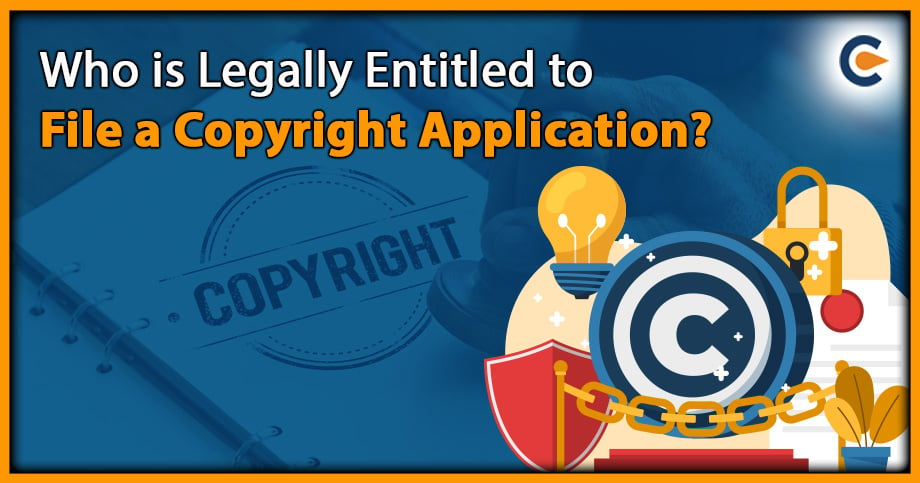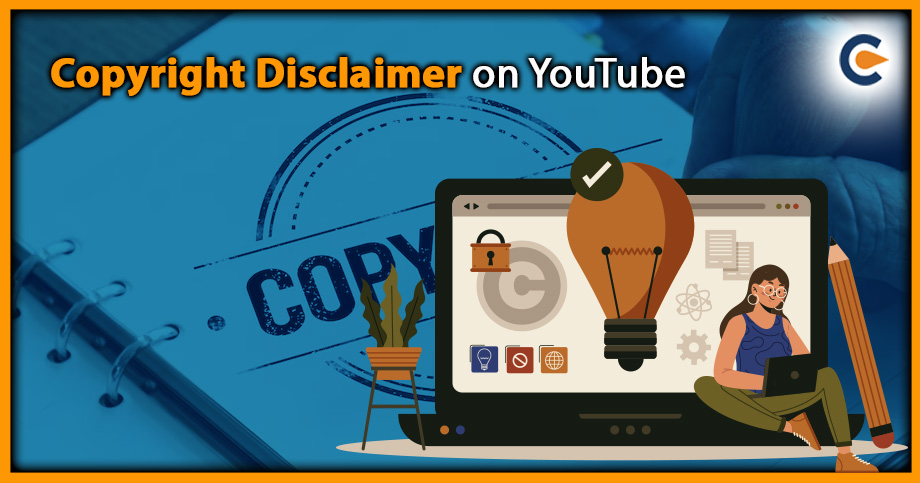The phrase “owner’s exclusive right to intellectual property” may be abbreviated to “copyright.” The word “copyright” The “copyright” for anything is another name for the right to duplicate it. This indicates that the only persons who are legally permitted to copy a work are the original writers of the work and any other individuals who have been given permission for this purpose by the creators of the work. The laws governing copyright provide creators of original works with the sole right to use and reproduce such creations for a predetermined amount of time until the work in question is released into the public domain. In this blog, we will discuss who is entitled to file a Copyright Application.
What Exactly Does It Mean To Have Copyright?
When a person creates something that is both original and believed, they have produced intellectual property that must be protected against copying so that it does not become ordinary. Unique innovations include a wide variety of things, including but not limited to computer software, pieces of art, literature, graphic designs, music lyrics and compositions, novels, movies, new architectural designs, webpages, and so on. The protection afforded by the law to the author’s right to an original work is known as copyright.
Legally speaking, an “original” work in the scope of copyright describes a piece of writing that has never been published anywhere else in the world before. “Original Piece of Authorship” is a word that’s used to refer to this sort of production (OWA). Nobody else may use or duplicate an original work of literature without first receiving permission from its author, since the author alone is granted copyright protection for the work. It is up to the original inventor to decide whether or not they wish to register their copyright in order to provide themselves a legal advantage.
Who Is Allowed To Submit A Copyright Application?
According to the Act, the following individuals are eligible to file Copyright applications:
- One Or More Authors
The person who really produces anything is known as the “author.”
Has had a role in the production of the original piece, such as a company in the case when the work was completed during the time that the individual was employed by the firm. This sort of arrangement is referred to as “work generated for hire,” which is an industry phrase. Or
Has been given authorization to pursue a copyright application for their creation by the relevant authorities in charge of the matter.
- Original Owner
Because of the safeguards provided by the Copyright Act[1], a creator has complete control about how his creation is used, disseminated, and resold. Under the laws governing copyright, the owner of an original work is granted certain exclusive performance rights. These rights include the right to replicate the work, the ability to perform it in an audience, the privilege to disseminate it to the public, and the right to generate adaptations and derivative works from the original. As a consequence of this, the creator of the original work is the only person who is permitted under Indian law to make an application claiming copyright protection.
- A Representational Party
In the name of, and on behalf of, any of the following, an authorized representative may file an application for copyright registration:
- Author or someone who writes.
- Whomever has the right to use the original version of a piece of work? Or.
- Anybody or whatever is claiming ownership of the copyright.
What Precisely Are Some Examples Of Works That Are Protected By Filing Copyright Application?
In India, a copyright application may be filed for any artistic activity that fits into one of the following categories:
- A musical creation, such as a song or another kind
- Printed texts, handwritten writings, and other examples of literary production
- Films created just for the purpose of being shown in theatres
- The development of styles
- Pieces of art that may be seen, such as sculptures and paintings
- Sounds captured on recording
- Any computer-related software or set of programmes that can be run using a computer.
- The protection afforded by copyright does not extend to items like slogans, catchphrases, brief phrases, titles, or names of concepts, ideas, or method
Why Is Copyright Registration Sought After?
Copyright protection is not needed, but it is strongly recommended because it grants the creator at least certain control over prospective copies of his creation and guarantees that no other individual may earn profit off of it for a set period of time. Although it is just not required, it is strongly recommended because it grants the originator at least some authority over prospective copies of his art. As long as the proprietor has this attitude, he or she will keep putting in long hours and turning out high-quality products.
How Exactly Does One Go About Acquiring A Registration For Their Copyright?
In order to successfully register for copyright, the following steps must be followed:
- A completed application of type FORM IV, together with the necessary fees, must be sent to the registrar (mentioned in the Schedule 2 of the act.). Every job has a unique application procedure.
- Each application has to be notarized by the applicant as well as an attorney who has been granted power of attorney or a vakalatnama on the applicant’s behalf.
- After the registrar has assigned a Dairy Number, there will be a window of time of thirty days during which any complaints may be submitted.
- The registrar will examine the application for any inconsistencies and, when there are none, will finalize the registration and submit an extract to the registrar so that it can be included in the Register of Copyright. If no complaints are received in under 30 days, the registrar will evaluate the application about any inconsistencies and, when there are none, will wrap up the registration.
- In the event that any objections are lodged, the examiner will provide written notice to all parties involved and, if required, will conduct a hearing.
- Following the conclusion of the hearing, the registrar will conduct a review of the application and decide whether or not it should be approved depending on how the objections were addressed.
Conclusion
The protections afforded by copyright cannot be extended to everything. The copyright law does not protect ideas, discoveries, conceptions, or theories. Titles, logos, slogans, service marks, and trademarks are not covered by copyright laws. Any work protected by intellectual property rights must exist in a tangible form. This suggests that in order to get copyright protection, ideas, musical scores, discoveries, and words need to be committed to paper. However, its regulation provides a great deal of protection and is of significant assistance to the work that may legally be protected by copyright.











